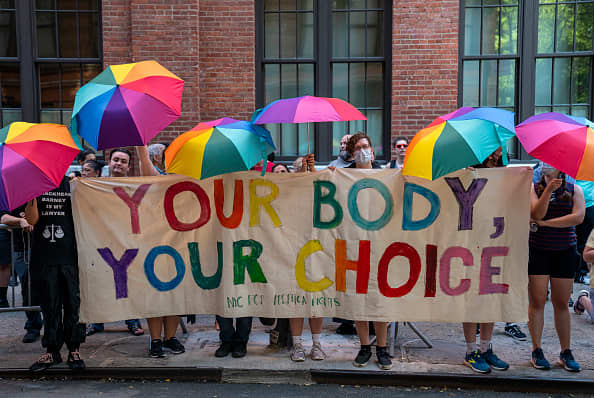What to Know
- The girl, who said she is pursuing a GED and living with a relative, was seeking a waiver from a state law that requires minors to get parental consent for an abortion.
- Florida law bars abortions after 15 weeks, under a new law passed ahead of the overturning of Roe v Wade by the U.S. Supreme Court.
- The girl was 10 weeks pregnant at the time of her original application. It is unclear how far into her pregnancy she was when the appeals court upheld the original lower court ruling.
An appellate court has upheld a lower court ruling that a parentless 16-year-old girl in the Florida Panhandle was not “sufficiently mature" to end her pregnancy while seeking a waiver from a state law that requires minors to get parental consent for an abortion.
Watch NBC6 free wherever you are
The teen, known as Jane Doe 22-B in court papers, had told the lower court that she wasn’t ready to have a baby, didn’t have a job and the father was unable to assist her. She was pursuing a GED and living with a relative. The teen also told the lower court that her appointed guardian was “fine” with her decision to have an abortion.
But the juvenile court judge in Pensacola found that the teen didn't adequately articulate her request. Judge Jennifer Frydrychowicz left open the option for re-evaluating her decision if the teen, who was 10 weeks pregnant at the time, could return to juvenile court to eliminate any lingering doubts, according to an order filed Monday from Florida’s First District Court of Appeal.
Get local news you need to know to start your day with NBC 6's News Headlines newsletter.
It was unclear when the lower court ruling took place. Juvenile records are not made public online.
The appeals court, in its decision, said it appeared the lower court anticipated a renewed application.
“Reading between the lines, it appears that the trial court wanted to give the minor, who was under extra stress due to a friend’s death, additional time to express a keener understanding of the consequences of terminating a pregnancy," Judge Scott Makar wrote in the appellate court order. “This makes some sense given that the minor, at least at one point, says she was open to having a child, but later changed her view after considering her inability to care for a child in her current station in life."
Florida law bars abortions after 15 weeks, under a new law passed ahead of the overturning of Roe v Wade by the U.S. Supreme Court. The new ban after 15 weeks, down from 24 weeks previously, is being challenged on state constitutional grounds.
Under Florida's “Parental Notice of and Consent for Abortion Act,” physicians must get written consent from a parent or legal guardian before performing an abortion on a minor. Exceptions are made in medical emergencies or with a waiver from the parents or guardian.



